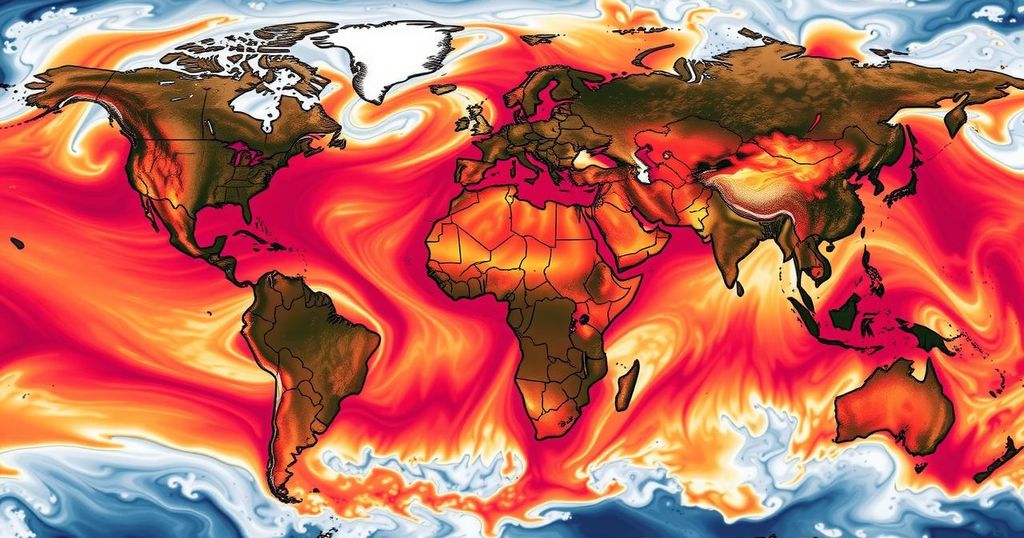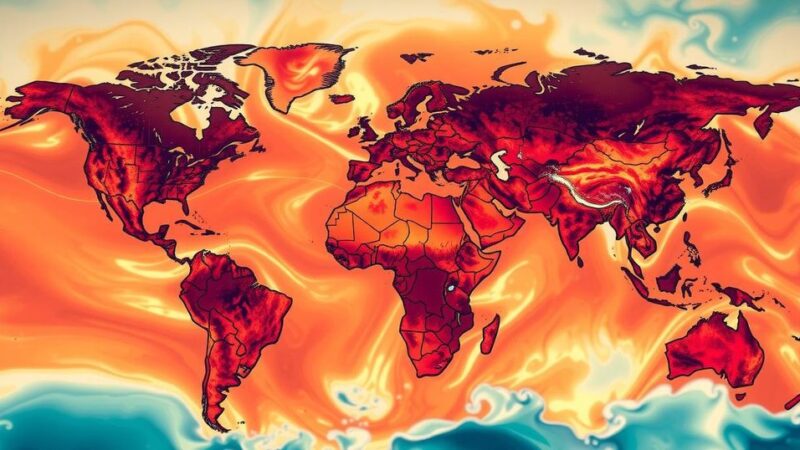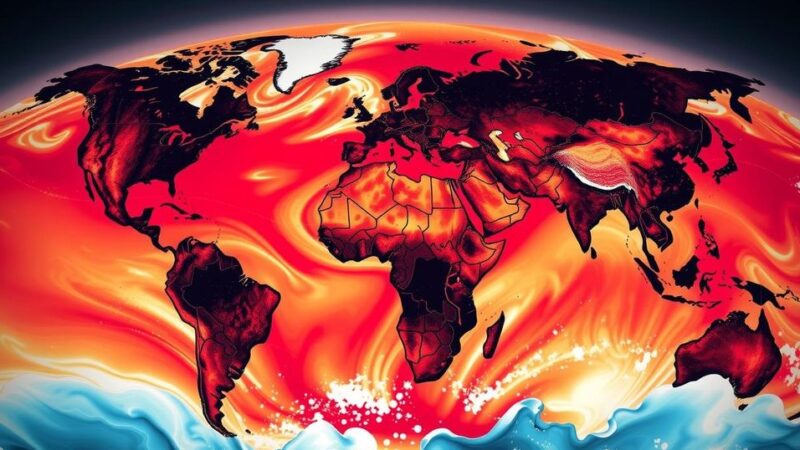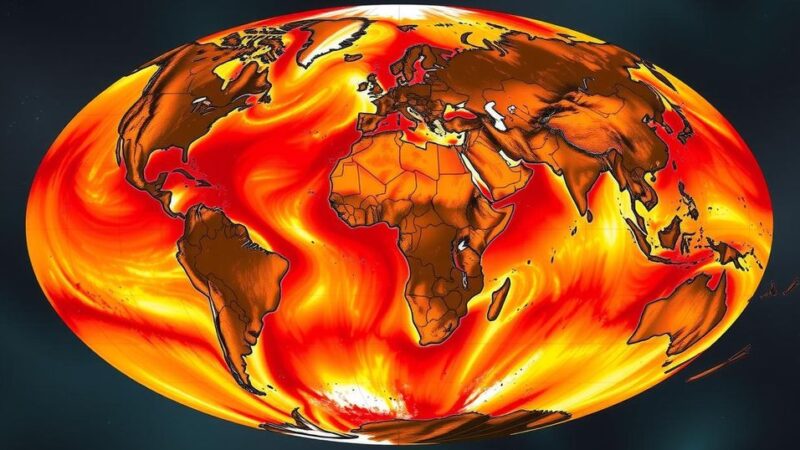In 2024, climate change caused an average of 41 additional days of dangerous heat worldwide, impacting millions and worsening extreme weather events across the globe, making it potentially the hottest year on record.
In 2024, climate change precipitated an alarming increase of 41 days classified as dangerous heat across the globe, as reported by a cohort of climate researchers. This year has been marked by an unprecedented rise in temperatures, rendering it potentially the hottest on record. The findings indicate that human-induced climate change significantly exacerbated extreme weather phenomena, including heat waves, droughts, and intense storms, thus jeopardizing the lives and livelihoods of millions worldwide.
As heatwaves proliferated, regions such as Northern California and Death Valley experienced extreme conditions, while Central America and Mexico were afflicted with scorching temperatures. Moreover, vulnerable populations, including children in West Africa, faced heightened risks due to these climatic changes. The research conducted by World Weather Attribution and Climate Central’s experts underscores a critical conclusion: the climate crisis is not merely an abstract concept but a tangible threat that has escalated the severity and frequency of adverse weather events.
This analysis indicates that some regions endured upward of 150 days of intense heat attributed to climate change. The situation was particularly dire in the least developed nations, where the impacts of the climate crisis are disproportionately felt. Additionally, the researchers noted that heat-related mortality is often significantly underreported, complicating public perception of the true scale of the crisis and hindering effective responses to mitigate its effects.
The scientists evaluated 29 extreme weather incidents that resulted in over 3,700 fatalities and millions of displaced individuals, ascertaining that 26 of these events were linked to climate change. In particular, the El Niño weather pattern acted as a contributing factor in amplifying these events earlier in the year. However, the consensus among researchers emphatically points to climate change as the primary driver of the extreme conditions witnessed in 2024.
Experts stress the urgency of addressing the climate crisis, positing that unless substantial actions are taken to curtail greenhouse gas emissions, extreme weather will only continue to escalate in both frequency and intensity. Moreover, the United Nations Environment Programme has cautioned that without decisive action, even more severe climate extremes will ensue in the coming years.
The phenomenon of climate change, primarily driven by human activities such as burning fossil fuels, has led to significant alterations in global weather patterns. The year 2024 has evidenced a particularly alarming escalation in dangerous heat days, posing serious risks to public health, agriculture, and overall environmental stability. As the consequences of climate change become increasingly palpable, understanding the mechanisms driving these changes, alongside their societal impacts, is crucial for formulating effective policy responses and mitigating future risks.
In summary, 2024 has been marked by an unsettling 41-day increase in dangerous heat globally, largely attributed to anthropogenic climate change. This surge in temperature has underscored the urgent need for action to mitigate the severe consequences of climate change, as exemplified by widespread health threats and intensified severe weather events. As highlighted by expert researchers, addressing climate change is paramount to safeguarding public health and the environment.
Original Source: apnews.com







